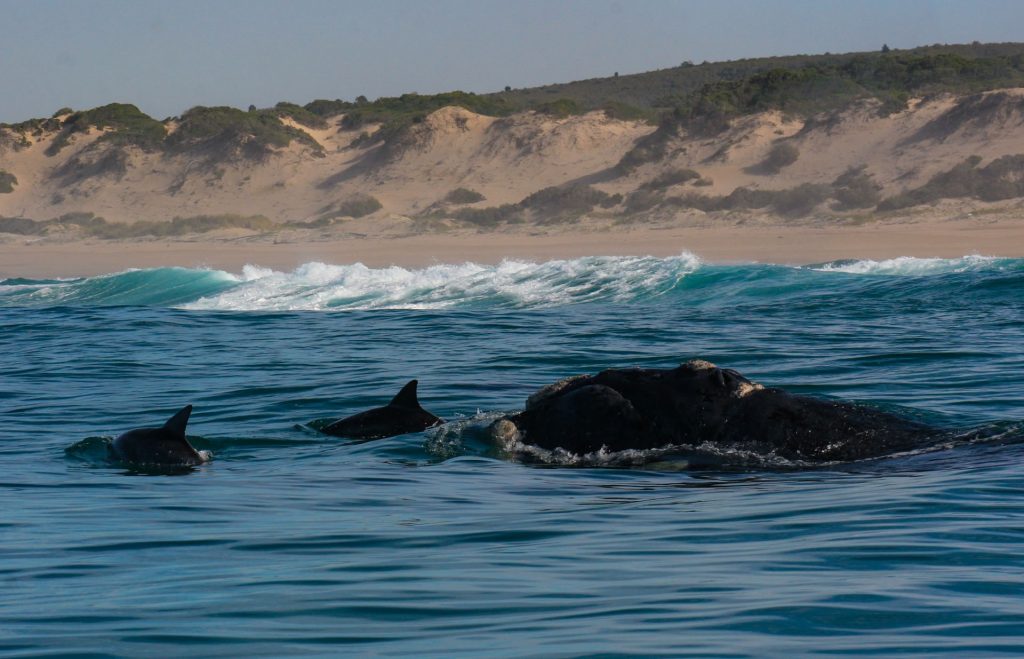Word is out - Plettenberg Bay is a candidate to become an official Whale Heritage Site, a prestigious status bestowed on only a few destinations worldwide.
Nestled between two Marine protected areas, Robberg and Tsitsikamma, Plett is perfectly situated for scientific study and marine tourism activities, like whale and dolphin watching. While Bryde's whales, Bottlenose dolphins, common dolphins, and endangered humpback dolphins frequent the area all year long, southern right and humpback whales can be spotted here from July to December during migrations.
A Whale Heritage Site is a recognition given by the World Cetacean Alliance (WCA) to destinations throughout the globe that support and highlight the importance of cetaceans (whales, dolphins, and porpoises) and their marine ecosystems. Additionally, by encouraging respect for and celebration of cetaceans through local culture, arts, and events, supporting local economic and environmental sustainability, and fostering locally based science, research, and education, these sites enable communities to look after and protect these magnificent marine mammals – a perfect fit for Plettenberg Bay.
The WCA seems to agree: “Sites like Plettenberg Bay have the potential to lead the way in responsible tourism, research and conservation, helping local communities and visitors alike to celebrate and care for the marine environment,” says Elizabeth Cuevas of World Cetacean Alliance. “We look forward to working with the stakeholders at Plettenberg Bay on their journey to become a Whale Heritage Site!”
Rob Smith, a dedicated local photographer and wildlife enthusiast, is the driving force behind the initiative. Inspired after attending the Marine Science Symposiums held at Plett’s first Ocean Festival earlier this year, Smith began to engage various stakeholders in the industry, firmly believing that the accreditation was ideal for Plett.
To successfully qualify as a Whale Heritage Site, WCA will work with local stakeholders to ensure a series of criteria are met in support of cetaceans through culture, education, research and conservation initiatives.
When it is officially accredited, as expected, in the next few months, Plett will join the ranks of Algoa Bay and The Bluff in SA, Hervey Bay in Australia, Dana Point in the US and Tenerife-La Gomera in Spain.
Being recognized as a Whale Heritage Site ensures that Plett maintains the highest standards of sustainable practices in the whale-watching industry and sets the bar high for other whale tourist hotspots throughout the globe. The name will benefit not just the local tourism sector but also the conservation of cetaceans in the future.

Whale and dolphins Plettenberg Bay coastline Dr Gwen Penry





